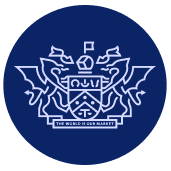Once again, we have a jam-packed issue of Catalyst for you. When we pull each edition together, the whole team sits down and asks, ‘What great ideas can we highlight for our readers this quarter?’ We want to make it as varied and vibrant as possible.
What doesn’t always occur to us is what happens to all these ideas when they land on your desk. In sharing new trends, innovations and words of wisdom from sector-leading experts, are we simply piling more onto your to-do list?
Our Big Conversation topic of ‘Sink or Swim’ really struck a chord with me this month. For some of us, back-to-school has transformed the lazy dog days of summer into a never-ending list of clubs, homework, events and so on. For those of us without children, there’s still that return-to-normal feeling as full teams are back and activity ramps up for the busiest quarter. It feels like there’s hardly a moment to catch your breath.
And sometimes, it’s not just a lot, it’s too much. Marketers are experiencing burnout at levels never seen before. There’s often a sense of accompanying guilt (“I’m not on the frontline”), but the exhaustion is real.
The causes are manifold. As organisations constantly evolve and reinvent, workflows can become chaotic. New technology is introduced as a supposed panacea, yet often makes things worse. Poor training leaves people unable to use it effectively, ROI falls short, and the original problems remain.
Sometimes, it comes down to leadership, or the lack of it. One of the skills identified last issue by Oliver UK CEO, Amina Folarin, who is also quoted in this issue, is that there is a gap in management skills. Effective leadership goes a long way to reducing the pressure on marketing teams and getting the best out of people and technology.
We have another article in this issue on how marketers use technology, penned by Vlad Komanicky, co-founder of Alchemists. He argues that now AI has entered the chat, we need to review how marketing agencies and suppliers are remunerated.
It’s not because AI has sliced out a chunk of time, and therefore a chunk of cost. The problem has been that agency contributions have been measured wrongly in the first place. Value should never have been measured in hours. The equivalence of junior versus director hours on an account is basically meaningless. Did it matter how many hours went into the Sony Bravia ‘Bouncing Balls’ ad, or is it more important that it has stuck in the collective consciousness for more than two decades? We shouldn’t really care how the sausage is made, just how juicy it is.
Tools will come and go. The fax was faster than the post, the email less tedious than the fax. AI will no doubt change how we go about doing what we do – but will it change what we do?
I’m dabbling in AI myself. If you follow me on LinkedIn, you’ll already have seen my trials with research tools (I accused one solution of behaving like a truculent teenager). So far, results have been mixed. This may be more down to my lack of ability to use the tools than the tools themselves, but even then, there are still many limitations. I can guarantee, for example, that none of Catalyst is written by AI, nor do I expect it to be in the future.
But I would like to explore how AI can remove more rote tasks – like searching the internet, scheduling interviews and archiving information. All lower-order tasks that, when sped up, free me to spend more time focusing on what brings value to our readers – innovation, creativity and insight. That’s where its real potential lies.

Unlock this exclusive content
Unfortunately this content is exclusive to CIM members only. Upgrade to instantly unlock this article plus other member only benefits.



